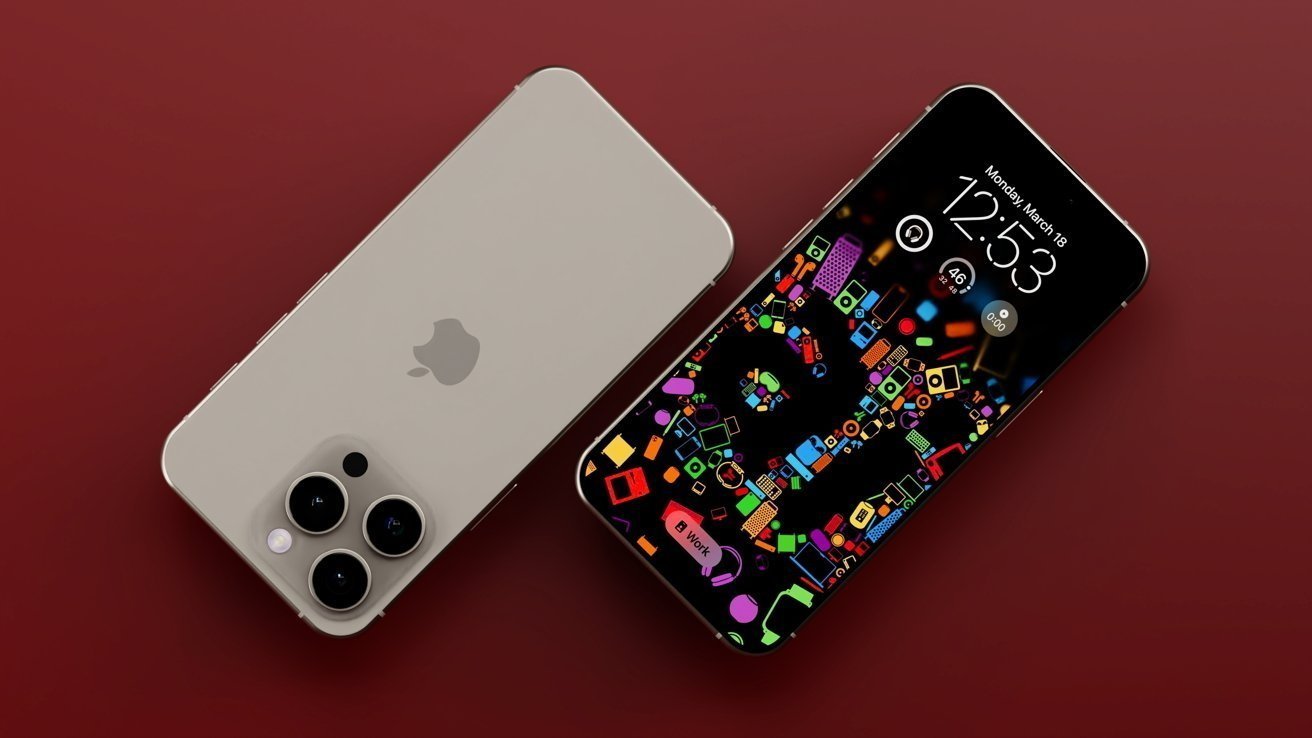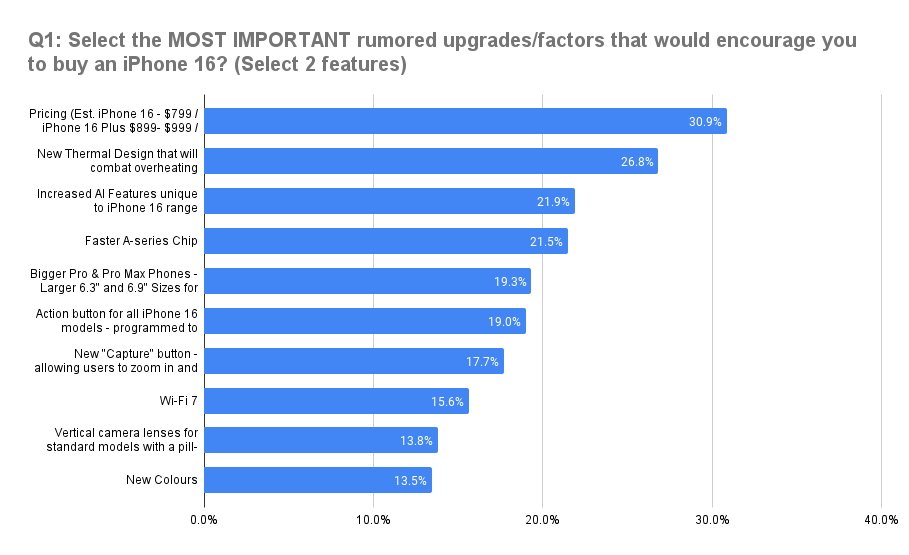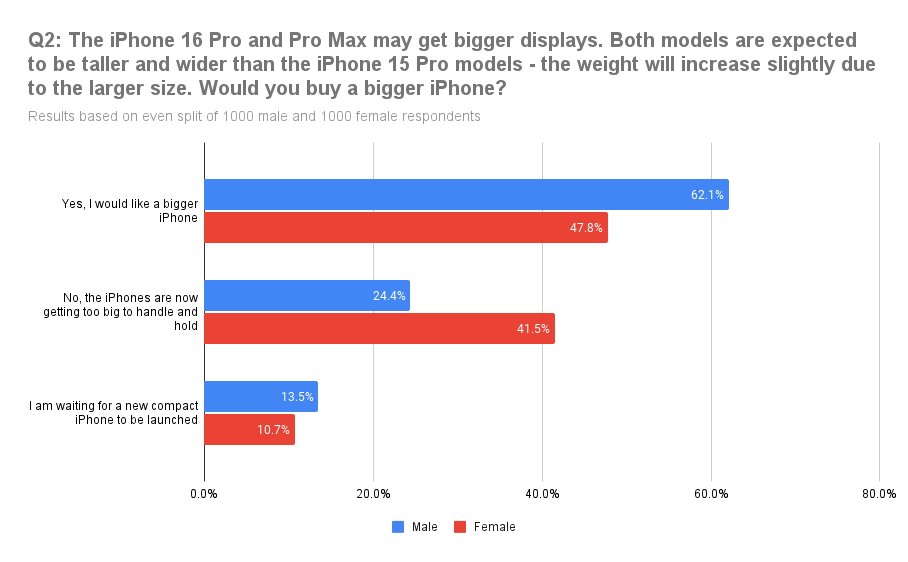Upgraders concerned about iPhone 16 pricing, Apple Intelligence features
Most potential upgraders will find pricing to be a big factor in moving to the iPhone 16, a survey claims, with the introduction of Apple Intelligence almost as important.

A render of what could be the iPhone 16 Pro
With the iPhone 16 range set to launch within weeks, potential buyers of the new handset have to consider which model they should move to. Now, a survey indicates many consumers will certainly be making the shift to the new models.
The survey by SellCell asked over 2,000 people about the iPhone 16 and their purchase intent. Approximately 61.9% said they will be upgrading to the new model.
In terms of the upgrade factors that could encourage consumers to upgrade, 30.9% said Apple's pricing of the iPhone 16 is their most important concern. In second place is thermal management, with 26.8% wanting Apple to keep their iPhones cool and minimally throttling.

A chart showing important iPhone 16 upgrade factors from a SellCell survey
Apple Intelligence is in third place, with 21.6% of consumers keen to see an increase in unique AI features. In fourth is a faster A-series chip with 21.5%, while in fifth is larger screen sizes.
Sixth and seventh places were shared by external buttons. 19% wanted to see the Action button across all iPhone 16 models, while 17.7% were keen to see the rumored Capture button.
Size matters
In another survey, the respondents were asked about the iPhone 16 Pro and Pro Max, which could have a taller and wider display.
Approximately 54.9% said they wanted a bigger iPhone. A total of 33% of respondents disagreed, saying that the iPhones are getting too big to handle by consumers.

Screen size survey results [SellCell]
A small group of 12.1% of the survey wanted to go back to the times of Mini models of iPhones, hoping that a new compact variant will be introduced.
When split down further to male and female responses, men were happier to use a bigger iPhone than women, at 62.1% to 47.8%. However 41.5% of women said that iPhones are getting too big versus 24.4 of male responses.
Slow your roll(out)
On the introduction of Apple Intelligence and the realization that most features won't be available at launch, consumers are still fine with waiting for them to arrive.
When asked if they're happy to wait an extra month to get AI features on an iPhone 16, 82.1% agreed with the wait. Only 17.9% said that the features should be launched alongside the iPhone 16 in September.
Read on AppleInsider

Comments
This is why surveys are so tricky. It sounds like they had a list of things and asked people what was most important, so nothing received a majority. If they had instead asked on each one if it was most important, somewhat important, slightly important, or not important, they would have been able to determine relative importance more clearly. I suspect thermal management was an issue on a lot of people’s list, but the other choices, price, AI, etc., ended up split up to make it seem more significant that it really is for most people.
"Overall, 66% of iPhone users said that they will be looking to upgrade to an iPhone 15",
which is a higher percentage of owners than potential up-graders this year.
It does not appear users followed through. IMO SellCell runs an extremely unreliable survey. But hey, they got their name in the news today.
This is yet another example of reporting on information devoid of statistical validity. In this case, the only known characteristic of those surveyed is that they currently own an iPhone. As we all should know, it's by design that interest in upgrading skews inversely in relation to the newness of each person's current iPhone. Without separating owners by (and controlling for) the model of each respondent's current phone, the percentage stat for people who "said they will be upgrading to the new iPhone" is virtually meaningless.
This is an all-too-common problem with reporting in popular media on studies and surveys across the board. Those writing up the reports either don't know or don't care about statistics, and as a result, end up reporting information that has little or no statistical validity or end up reporting on actual scientific research, but draw conclusions that are not actually claimed by or supported by the source research.
"Listicles" are among the worst examples of the former. They'll report on the top ten cities for something or other, and when you look at the methodology, you'll see they've cobbled together unrelated data to come up with "indicators" to which they then give arbitrary weight in a formula that will yield "points" with which they then use to rank order the 100% meaningless results.
Alternatively, reports on the health benefits of popular foods or beverages will often draw sensational conclusions that aren't supported by the sourced research. A research paper will perhaps find that a chemical found in Agave plants might have some potential health benefit in the form of antioxidants. The study will clearly note that the process of distilling agave extracts will remove that chemical, and yet there will still inevitably be click-bait-ready reports that incorrectly refer to the study and claim it says that drinking tequila prevents cancer.
it must be August.
Texting, too.
I may speak on the phone a few times a week. That’s it.
The camera’s optical zoom in the newer model sounds interesting.
williamlondon said: when you have crap that is trained by stealing people’s work, but claiming it’s done “ethically” it’s hard to stay calm.